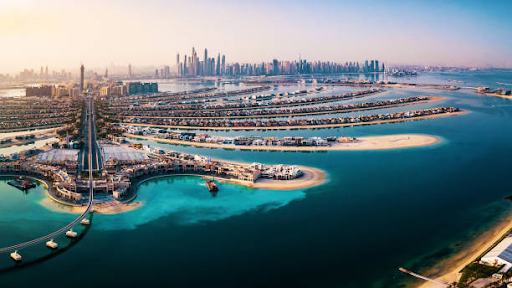Ajman Free Zone License Costs: A Comparative Guide to UAE Free Zones

The UAE is a great place for entrepreneurs to invest their money. However, it is important to choose the right free zone for your business in order to maximize your investment. This article will focus on the ajman free zone license cost and compare it with other well-known free zones in the UAE so that we can find out which one offers the best value. We want to provide a comprehensive overview of all available options by looking at different licenses’ costs and benefits. As more and more businessmen are attracted by the booming economy of the United Arab Emirates, making an informed decision has never been so crucial. Start-up expenses, annual fees as well as additional services provided by each free zone should be taken into consideration by business owners. We will discuss these factors extensively to help you make up your mind.

Understanding Free Zones in the UAE
What is a Free Zone?
Free zones are special areas within the UAE where companies can enjoy certain privileges like 100% foreign ownership and no import or export duties. These zones are designed to attract international investors and create favorable conditions for doing business. When operating from a free zone, businesses benefit from simplified procedures of setting up their enterprises there; they also get tax exemptions and full repatriation of profits among other advantages. Moreover, such zones cover various industries thus offering flexible solutions for entrepreneurs with different goals in mind. In simple terms, free zones play a key role in establishing vibrant economic environment conducive to trade and commerce. Therefore, it is important that businesses intending to start successfully in the UAE have clear understanding of how these areas work.
Different Free Zones in the UAE
There are many different types of free zones across the country which cater for diverse needs of various businesses. Some examples include Dubai Multi Commodities Centre (DMCC) known for its wide range trading facilities; Sharjah Airport International Free Zone (SAIF) appreciated because it provides excellent logistics support; Abu Dhabi Global Market (ADGM) which boasts strong regulatory framework backing up financial services sector. Each free zone has its own unique features such as strategic locations, state-of-the-art infrastructure and tailor-made support services for enterprises. Entrepreneurs need to evaluate these aspects since they are critical for operational success. Understanding what different free zones excel at will enable companies make well informed choices that are aligned with their strategic objectives.
Ajman Free Zone License Costs
Initial Setup Costs
When compared with other UAE free zones, the setup costs for a business license in Ajman Free Zone are quite affordable. Entrepreneurs should take into account various fees including registration fee, license fee and minimum capital requirement among others. Below is an itemized list showing typical initial expenses for different licenses:
- Trading License: AED 10,500
- Industrial License: AED 13,500
- Service License: AED 9,500
Annual Renewal Fees
Annual renewal fees form an integral part of any business’ budget planning process. In Ajman Free Zone these charges tend to be lower than those charged by most other UAE free zones thus resulting into significant savings over time. Normally during renewal one is required to pay license fee plus any applicable administrative charge(s). Unlike some areas where fee structures may be complex or unclear, Ajman Free Zone provides transparency which enables entrepreneurs to manage their finances better. By having clear understanding of what it costs to renew a license every year; firms can ensure compliance while avoiding sudden financial strains through proper budgeting. Properly aligning renewal expenditure with growth trajectory is key towards sustained financial wellness and expansion of enterprises.
Hidden Expenses to Consider
While initial and renewal fees may seem clear-cut, there are hidden costs that can accumulate and affect overall financial planning. Some common hidden expenses include office space rental fees, employee visa procurement charges, and other government levies. Entrepreneurs should anticipate these additional costs and incorporate them into their budgeting process. For example, the need for a physical office space and subsequent maintenance fees can greatly impact the total financial commitment when starting a business in Ajman Free Zone. Therefore, it is important to be transparent about all possible expenditures in order to have a successful launch of the business. A comprehensive financial plan will enable entrepreneurs to avoid pitfalls and maximize their resources.
Comparing Ajman Free Zone to Other UAE Free Zones
Evaluating Costs Versus Value
In free zones, looking at cost alone does not give the full picture of value. Below is a comparison table showing license costs across some popular UAE free zones including Ajman Free Zone:
| Free Zone | Trading License Cost (AED) | Industrial License Cost (AED) | Service License Cost (AED) |
|---|---|---|---|
| Ajman Free Zone | 10,500 | 13,500 | 9,500 |
| DMCC | 15,000 | 18,000 | 12,000 |
| SAIF Zone | 11,000 | 14,000 | 10,000 |
| ADGM | 20,000 | 25,000 | 18,000 |
This comparison shows that Ajman Free Zone has significantly lower license costs but evaluating value requires more than just price consideration. Additional services offered by each free zone such as quality infrastructure; business support; networking channels among others can greatly impact operational success. Understanding these disparities enables entrepreneurs to make informed decisions on where they should set up their businesses. Furthermore location and nature of business must also be factored in this strategic decision making process.
Pros and Cons of Ajman Free Zone
There are advantages as well as disadvantages associated with setting up shop at the Ajman Free Zone. On the positive side, it is known for being cost-effective which allows businesses to operate on limited budgets compared to other options in UAE. Additionally, its geographical location provides easy accessibility to Dubai and Sharjah thereby enhancing logistical flexibility. However, there are some downsides that one should be aware of. For instance, Ajman Free Zone may have fewer industry options compared to larger free zones thus limiting opportunities for certain businesses. By carefully considering these pros and cons, entrepreneurs can determine whether or not Ajman Free Zone suits their operational needs.
Entrepreneur Insights
Insights from business owners who have operated within Ajman Free Zone and other UAE free zones can be quite enlightening. Many entrepreneurs appreciate the lower cost of doing business as well as the supportive administrative environment in Ajman. They often mention about efficient licensing process and overall satisfaction with government services rendered unto them. Conversely, feedback from those who have set up shop in bigger zones like DMCC highlights extensive networking opportunities and access to wider client base among others. Gathering such qualitative information is important for potential investors as they mull over their path towards establishing a business presence in UAE.
Which Free Zone Offers the Best Value?
Factors to Consider When Choosing a Free Zone
There are several key factors that should be taken into account when selecting a free zone for your business. Firstly, you need to think about your industry because some free zones specialize in certain sectors while others cater for a wide range of industries. You should also look at where your target market is and consider which location would provide the most logistical benefits in terms of proximity to clients. Budget is another important consideration; knowing what the initial costs as well as ongoing expenses are can help guide you towards choosing a free zone that fits within your financial plan. Finally, it’s worth considering whether or not the free zone you choose will be able to grow with your business – as things change over time, so too might operational requirements and service needs.
In Conclusion
To sum up, Ajman Free Zone is known for being cost-effective which makes it an attractive option for start-ups and small businesses alike. This is especially beneficial if you want to keep down initial outlays whilst still receiving necessary support for running a company. However, there may be other free zones better suited towards companies looking at expansion or those needing specialist services on offer elsewhere in the UAE. Ultimately though, value comes from matching up what each individual free zone has available against specific business requirements thereby creating an environment most conducive to entrepreneurial success.
FAQs
What types of licenses can I get at Ajman Free Zone?
Answer: Ajman Free Zone offers different types of licenses such as trading license, industrial license and service license depending on nature of business activity.
Is Ajman Free Zone suitable for small businesses?
Answer: Yes, Ajman Free Zone is ideal for small enterprises due to its relatively low setup costs and operational expenses compared with other UAE free zones.
What visa do I need if I want to set up my company in Ajman Free Zone?
Answer: Entrepreneurs can apply for residency visas along with their business licenses; the number of visas granted will depend on the amount of office space rented.
How does Ajman Free Zone support businesses?
Answer: Ajman Free Zone provides extensive assistance through business advisory services, networking events and access to infrastructure facilities.
Can I change my business activity in Ajman Free Zone later?
Answer: Yes, it is possible to alter your business activity in Ajman Free Zone but this usually involves following certain procedures and may attract additional charges.